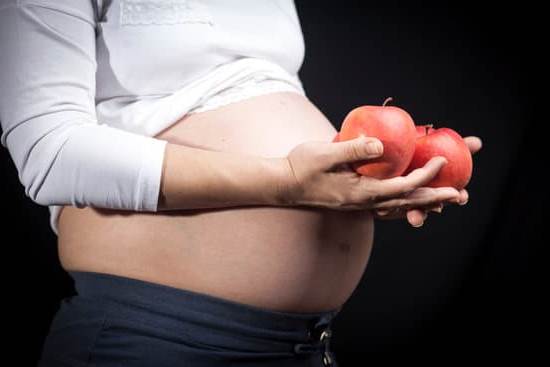Wondering how many months of pregnancy is 16 weeks? Understanding the concept of pregnancy trimesters can help answer this question. Pregnancy is typically divided into three trimesters, each lasting approximately three months. During the 16th week of pregnancy, a woman is in the second trimester, but how does that translate to months? Let’s explore this further.
Pregnancy is measured in weeks, but many people prefer to think about it in terms of months. However, this can be quite confusing since not all months have the same number of days. Understanding how many months of pregnancy is 16 weeks requires knowing how to calculate weeks and months in pregnancy.
During the first 12 weeks of pregnancy (1st trimester), significant developments occur in the baby’s growth and organ formation. The next 14 weeks leading up to week 26 belong to the second trimester, during which time the baby’s organs continue to mature, and expectant mothers may experience different symptoms and changes. At 16 weeks, it’s crucial for women to understand what is happening with their bodies and their growing babies.
Calculating Weeks and Months in Pregnancy
When it comes to pregnancy, understanding how many weeks in a month can be a bit confusing. Generally, pregnancy is divided into three trimesters, with each trimester lasting about three months. However, each month of pregnancy is not exactly four weeks long, which can make it difficult to determine how many months pregnant you are at a specific week.
At 16 weeks pregnant, you are in the midst of the second trimester. This means that you have completed about 4 months of your pregnancy. However, since the average month has more than 4 weeks in it (4.3 weeks to be exact), it is more accurate to say that being 16 weeks pregnant equates to around 4 months and one week.
| Weeks | Months |
|---|---|
| 12 | 3 months |
| 16 | Around 4 months |
| 20 | Around 5 months |
Overall, while it’s helpful to understand how many months into your pregnancy you are at different points, what’s most important is receiving proper prenatal care and ensuring both mother and baby are healthy throughout the entire gestation period.
1st Trimester
At 16 weeks of pregnancy, a woman is well into the second trimester. The first trimester of pregnancy lasts from week 1 through week 12, and during this time many women experience symptoms such as morning sickness, fatigue, and breast tenderness. It is also during this time that the baby’s major organs and body systems begin to form.
The second trimester spans from week 13 through week 26, which includes the 16-week mark. At this point, most women find relief from early pregnancy symptoms like nausea and begin to feel better overall.
At 16 weeks pregnant, the baby is growing rapidly. By now, the baby is about the size of an avocado – approximately 4.6 inches long and weighing about 3.5 ounces. The baby’s eyes are moving closer together, and their ears are now located on the sides of their head. At this stage, the baby’s sex can often be determined via ultrasound if desired.
During the second trimester, many women experience an increase in energy levels and a more positive outlook on their pregnancy as they begin to look noticeably pregnant rather than simply appearing bloated. This period is also a great time for expectant mothers to schedule appointments with healthcare providers to monitor both their own health and that of their growing baby.
| Trimester | Weeks | Months |
|---|---|---|
| 1st Trimester | 1-12 | About 3 months |
| 2nd Trimester | 13-26 (including week 16) | About 6 months |
2nd Trimester
At 16 weeks, a pregnant woman is well into her second trimester. This period spans from week 13 to week 26 of pregnancy and is often considered the easiest and most enjoyable trimester for many expectant mothers. During this time, women typically experience relief from early pregnancy symptoms such as morning sickness and fatigue. The second trimester is also when the baby’s development becomes more noticeable, making it an especially exciting time for parents-to-be.
Baby’s Development at 16 Weeks
At 16 weeks, the baby is about the size of an avocado and weighs around 3 to 5 ounces. Throughout this stage, the baby’s body continues to grow and develop rapidly. By this time, their little ears are now in their final position while their eyes have moved closer to the front of the face. They are also starting to form taste buds on their tongue, marking an important milestone in their sensory development.
Common Symptoms and Changes at 16 Weeks
During the second trimester, many women experience a boost in energy levels as they start to feel less fatigued than they did during the first trimester. Additionally, some common symptoms that may be present at 16 weeks include increased appetite due to rapid growth of the baby, round ligament pain as the uterus expands, and occasional headaches or dizziness as a result of hormonal changes.
Tips for Managing the 16th Week of Pregnancy
To manage symptoms at this stage in pregnancy, it’s essential for expectant mothers to prioritize self-care by getting plenty of rest, eating a balanced diet rich in nutrients and staying hydrated. Engaging in light exercise routines such as prenatal yoga or walking can also help alleviate discomforts associated with pregnancy and contribute to overall well-being during this critical period of fetal development.
It’s important for pregnant women to attend regular prenatal check-ups with healthcare providers for proper monitoring of both maternal health and fetal growth.
3rd Trimester
At 16 weeks, a woman is still in the second trimester of her pregnancy. The third trimester does not begin until week 27, which means that there are still 11 more weeks to go before entering the final stage of pregnancy. The third trimester is a crucial time for both the mother and the baby as they prepare for the birth of the child.
During the third trimester, the baby’s organs continue to develop and mature, with the lungs reaching full maturity by around week 36. At this time, the baby is gaining weight rapidly and filling out its body in preparation for life outside the womb. Additionally, the mother may experience increased discomfort as she carries more weight and experiences symptoms such as backaches and fatigue.
Here are some key points to keep in mind during the third trimester:
- Continue prenatal care visits with your healthcare provider
- Monitor fetal movement regularly
- Prepare for labor and delivery by taking childbirth education classes
It is important to note that every pregnancy is unique, so it’s essential to consult with a healthcare provider to ensure that both mother and baby are healthy throughout this crucial period. Remember that despite any discomfort or impatience, patience and self-care are vital during these last few months of pregnancy.
Understanding the Development of the Baby at 16 Weeks
At 16 weeks of pregnancy, the baby is continuing to grow and develop at a rapid pace. At this stage, the baby is about the size of an avocado, measuring around 4.6 inches in length and weighing about 3.5 ounces. The baby’s skeleton is also starting to harden, and their little muscles are becoming stronger, allowing for more movement and activity in the womb.
Organ Development
By 16 weeks, the baby’s organs are well formed and are continuing to mature. The heart has been beating for several weeks now, but at this point, it can be heard with a stethoscope. The kidneys are also functioning and producing urine which is being excreted into the surrounding amniotic fluid.
Fetal Movements
At 16 weeks, many women will start to feel the first fluttering movements of their baby, known as “quickening”. This is often described as feeling like a gentle tapping or popcorn popping sensation in the lower abdomen. However, not all women will feel these movements just yet, especially if it is their first pregnancy.
Overall, understanding the development of the baby at 16 weeks can bring a sense of wonder and excitement for expectant parents as they continue to visualize and bond with their growing child within the womb.
Recap: how many months of pregnancy is 16 weeks? At 16 weeks pregnant, you are four months along in your pregnancy journey. This marks the beginning of your fourth month.
Common Symptoms and Changes at 16 Weeks of Pregnancy
At 16 weeks of pregnancy, many women experience a shift in their physical and emotional state as they enter the second trimester. During this time, the baby is growing rapidly, and the mother’s body is going through significant changes to accommodate this growth. Here are some common symptoms and changes that women may experience at 16 weeks of pregnancy:
- Increased energy levels: Many women find that their energy levels start to improve during the 16th week of pregnancy. This is because the placenta is now fully developed and taking over the task of producing hormones to support the pregnancy.
- Visible baby bump: At 16 weeks, many women will start to notice a visible baby bump as the uterus continues to expand. This can be an exciting moment for expectant mothers as it makes the pregnancy feel more real.
- Fetal movement: Some women may start feeling flutters or movements from the baby around this time. These early movements, known as “quickening,” can be a thrilling experience for pregnant women as it provides reassurance that the baby is growing and developing.
It’s important to note that every woman’s experience with pregnancy is unique, so not all women will experience these symptoms and changes at 16 weeks. However, understanding these common occurrences can help expectant mothers prepare for what may come during this stage of their pregnancy.
Tips for Managing the 16th Week of Pregnancy
During the 16th week of pregnancy, it’s common for many women to start feeling a renewed sense of energy and well-being after the often challenging first trimester. This is the time when most women begin to “show” and their baby bump becomes more pronounced. Along with these visible changes, there are also some important tips for managing this stage of pregnancy.
One way to manage the 16th week of pregnancy is by continuing to prioritize prenatal care. At this point, you should have already had several prenatal check-ups, but it’s crucial to continue attending these appointments regularly. Your healthcare provider will monitor your health and the development of your baby, provide important information about nutrition and exercise, and address any concerns or questions you may have.
Another tip for managing the 16th week of pregnancy is to continue focusing on maintaining a healthy lifestyle. This means eating a balanced diet that includes plenty of fruits, vegetables, lean proteins, and whole grains. It also means staying physically active-talk to your healthcare provider about safe exercises during pregnancy. Getting enough rest is equally important at this stage, as fatigue can still be a factor for some women even as energy levels start to improve.
Managing stress and practicing self-care are also crucial during the 16th week of pregnancy. As your body continues to undergo changes and preparations for childbirth progress, it’s normal to experience anxiety or other emotions related to these significant life changes.
It’s important for pregnant individuals to seek support from their partners, loved ones, or even professional counselors if needed. Practicing relaxation techniques such as deep breathing or prenatal yoga can also be beneficial in managing stress during this time.
Recap
In conclusion, understanding the progression of pregnancy in terms of weeks and months is essential for expectant parents. As we have discussed, pregnancy is typically divided into three trimesters, with each trimester encompassing a specific range of weeks. At 16 weeks, a woman is well into her second trimester, which spans from week 13 to week 26.
At 16 weeks of pregnancy, the baby’s development is rapidly advancing, with significant growth and critical organ formation taking place. Expectant mothers may also experience common symptoms such as increased energy, weight gain, and noticeable changes in their physical appearance. It’s important for women to continue taking care of themselves both physically and emotionally during this stage of pregnancy.
As couples navigate through the various stages of pregnancy, it’s crucial for them to stay informed about the changes that occur at each milestone. Understanding how many months of pregnancy is 16 weeks can help alleviate any confusion or uncertainties that may arise along the way. By being proactive in seeking out vital information and support resources, expectant parents can ensure a healthy and positive experience throughout the course of their pregnancy journey.
Frequently Asked Questions
Is 16 Weeks Considered 5 Months Pregnant?
16 weeks is considered to be the beginning of the fifth month of pregnancy. In terms of months, some sources consider 16 weeks to be 4 months pregnant, while others consider it to be the start of the 5th month.
What Week Is 5 Months Pregnant?
At 22 weeks pregnant, a woman is considered to have reached the five-month mark of her pregnancy. This is based on a standard calculation of 40 weeks for a full-term pregnancy and averaging four weeks per month.
Does 16 Weeks Mean 4 Months?
Some sources consider 16 weeks to mean that a woman is four months pregnant, based on a calculation of four weeks per month. However, others may say that this marks the beginning of the fifth month based on a different way of counting months in pregnancy.

Welcome to my fertility blog. This is a space where I will be sharing my experiences as I navigate through the world of fertility treatments, as well as provide information and resources about fertility and pregnancy.





